By Jacob Geanous
Suffolk alum James Bamford demonstrated how his degree enabled him to stand toe-to-toe with our nation’s intelligence-gathering agency on Thursday in front of an audience dominated by current law students.
His lecture, “Espionage, Eavesdropping, Edward Snowden, and the Foreign Intelligence Act went into depth about the injustices committed by the National Security Agency.
Bamford is a contributing member of Wired Magazine, a columnist for Foreign Policy Magazine, a documentary producer for PBS, as well as a New York Times best-selling author. He has garnered national attention for his best-selling tetralogy that shines light on the NSA.
After serving his country as an intelligence analyst for three years during the Vietnam War, he used the GI bill he earned to attend Suffolk Law School. While there, he took the opportunity to be stationed at an NSA listening post in Sabana Seca, Puerto Rico as a navy reservist.
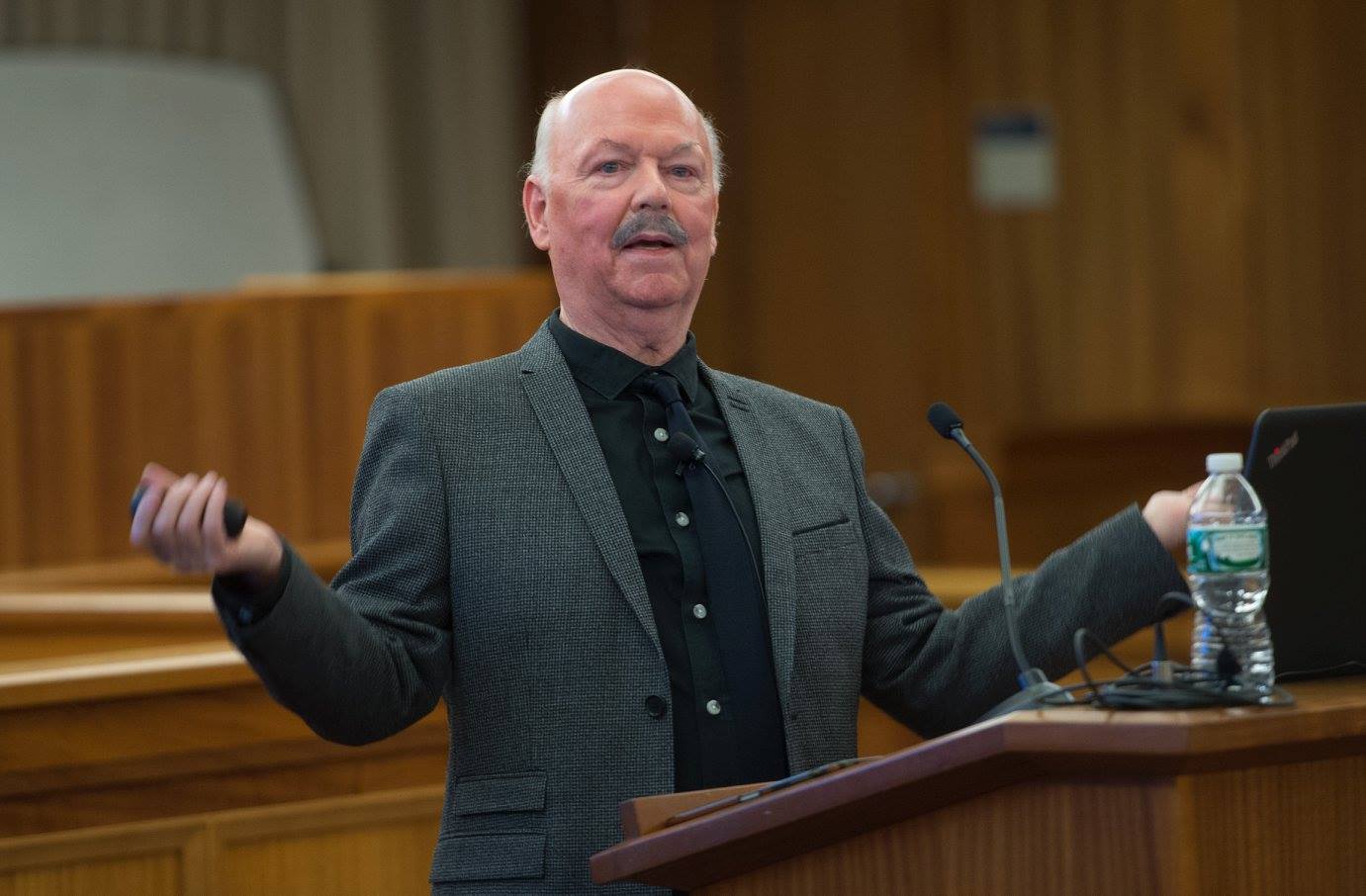
This is when Bamford discovered that the NSA was spying on American citizens.
“One of the guys asked if I wanted to listen to something,” recalled Bamford. “I was expecting to hear a foreign voice, but the voices I heard were American.” He said that this is when he came to the horrifying realization that even American citizens weren’t safe from the warrantless eavesdropping by the NSA.
After making this discovery, Bamford was faced with the tough decision of whether he should report the NSA to the Church Committee, responsible for studying governmental operations with respect to intelligence activities at that time. Ultimately, Bamford felt that the NSA had to be held accountable for breaking the law.
“I was in my last year at law school, and being a whistleblower isn’t the best way to start,” he explained. “If I’m advocating to stop the war, I figured I should do my part. I became a whistleblower for the Church Committee.”
His decision to testify against the NSA in front of the Church Committee led to widespread reforms in our country’s intelligence-gathering sector.
In the wake of these impactful events, Bamford said, he made the decision to become a writer.
“Writing about the NSA was like going to boot camp,” he said.
Bamford explained that his legal expertise was conveyed through his use of the Freedom of Information Act to acquire copies of the Department of Justice’s investigation on the NSA. The investigations revealed the transgressions the NSA was accused of, including warrantless wiretapping and forcing communication companies to give them access to their data.
When the NSA learned that Bamford was in possession of this incriminating information, they tried to sequester the documents and charge him with espionage.
Bamford, knowing his rights, said he was able to avoid prosecution and hold on to the information.
“Legal problems follow me wherever I go,” Bramford added with a smirk. He has yet to succumb to a legal scuffle.
After accumulating enough information, Bamford published his first book,“The Puzzle Palace: A Report on the NSA, America’s Most Secret Agency.”
“People thought the world would end,” Bramford said, recalling the response that preceded the book’s debut.
This earned him a meeting with the NSA, where they offered him a full tour of their enigmatic facility. In return, he was told that he was going to have to abstain from taking pictures and he could not target any key NSA officials in his writings.
He assured the crowd that he took pictures anyway.
Bramford turned his discussion to Edward Snowden, the controversial NSA whistleblower, that he had the opportunity of interviewing in Moscow for a short time.
“I got to know him the best that you could get to know someone in three days,” he said.
When asked what he thinks Snowden deserves, Bamford replied, “At Suffolk I never had a case that big, but he broke the law and should go to jail.”
The next lecturer will be Susan Hermon, president of the American Civil Liberties Union, on March 3.


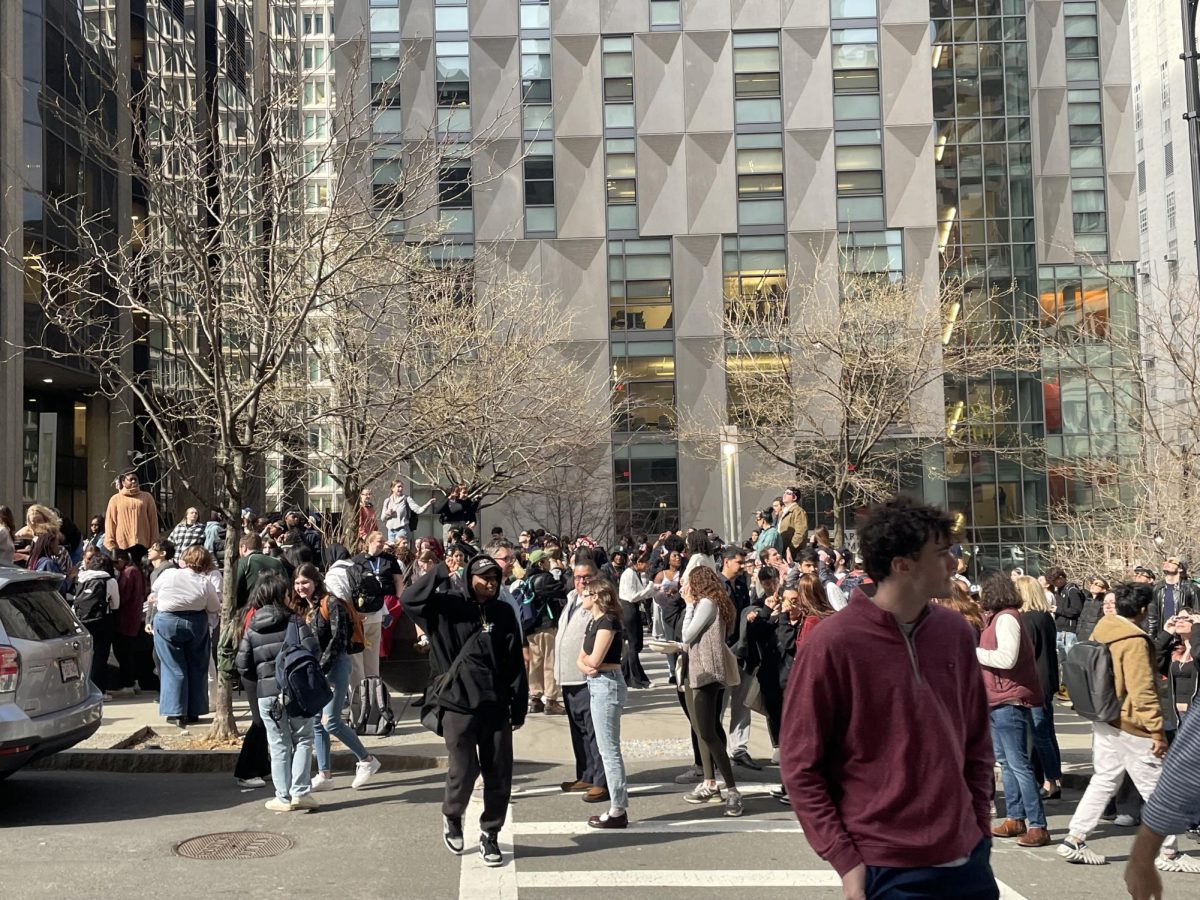
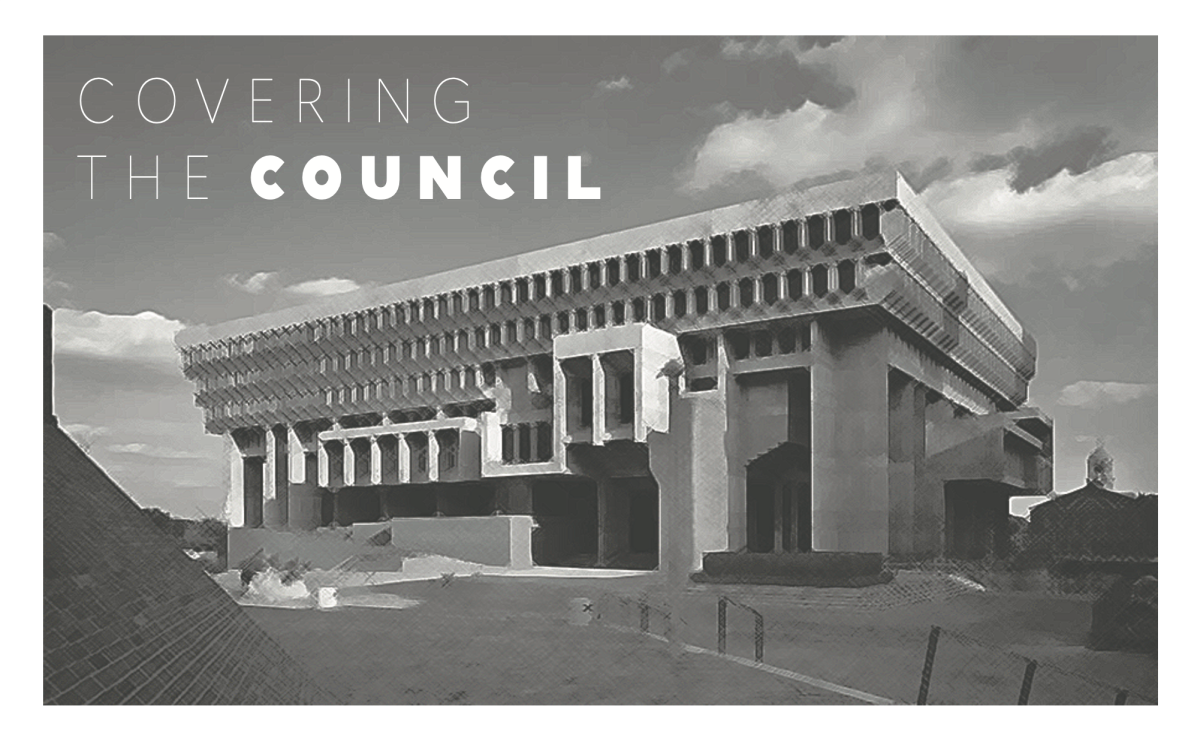
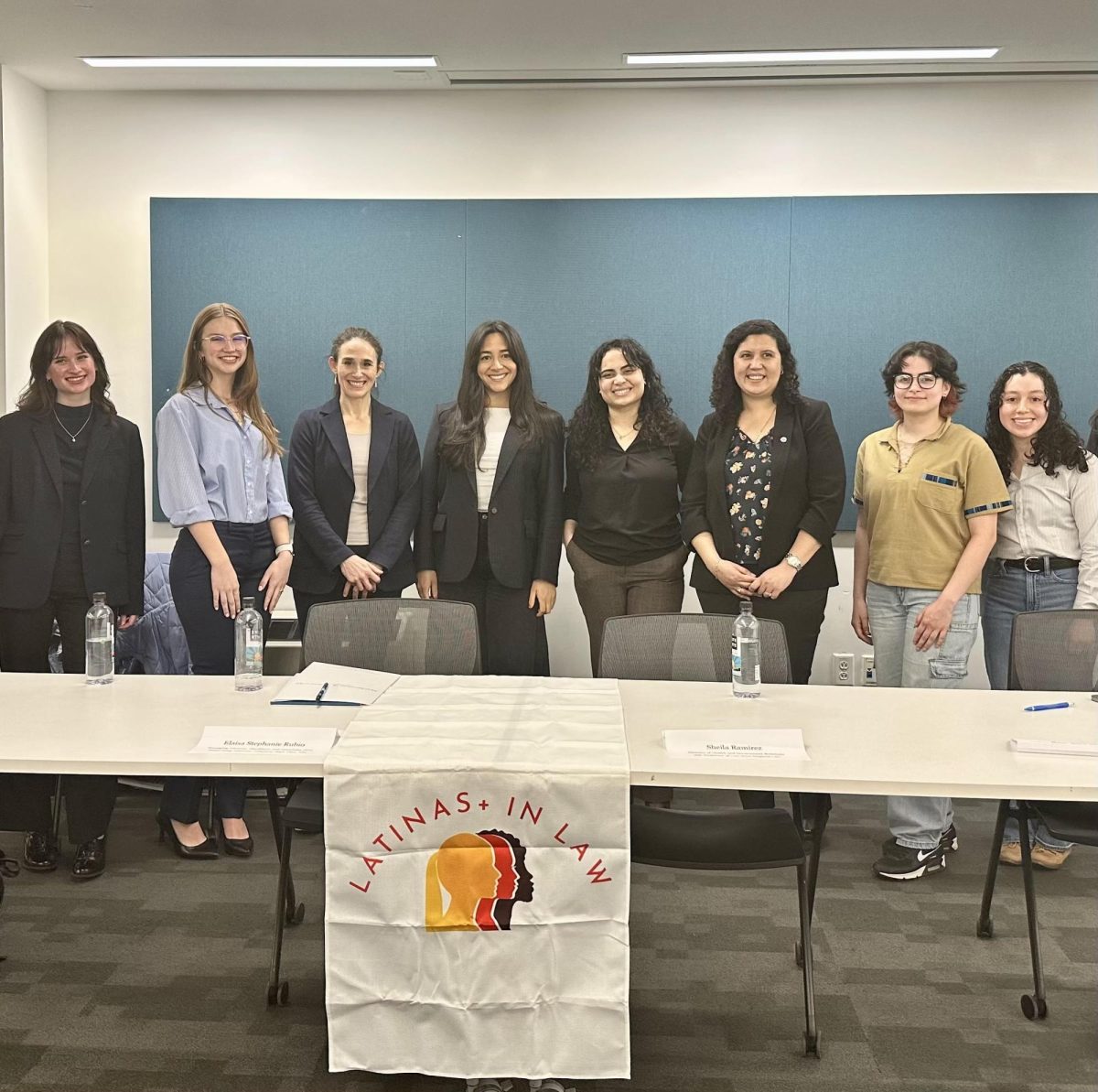
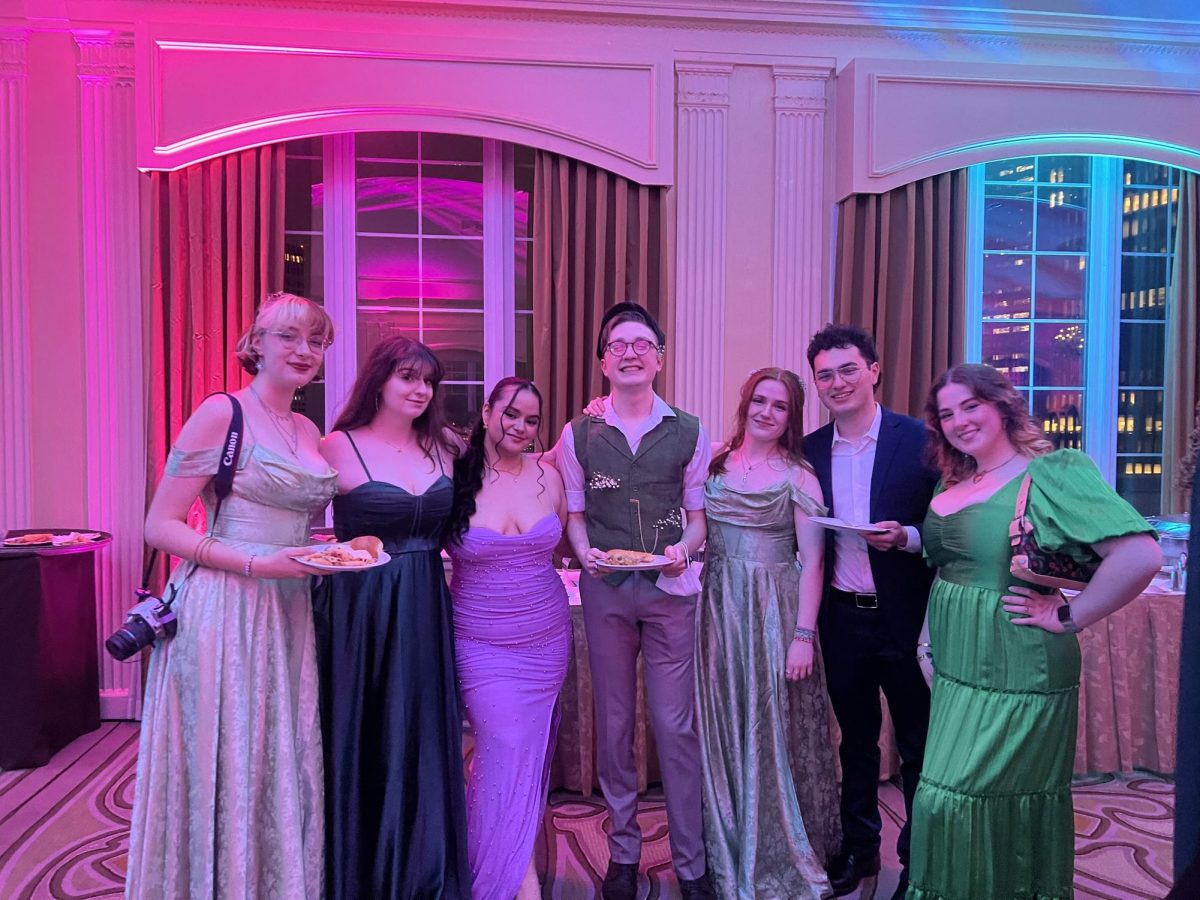
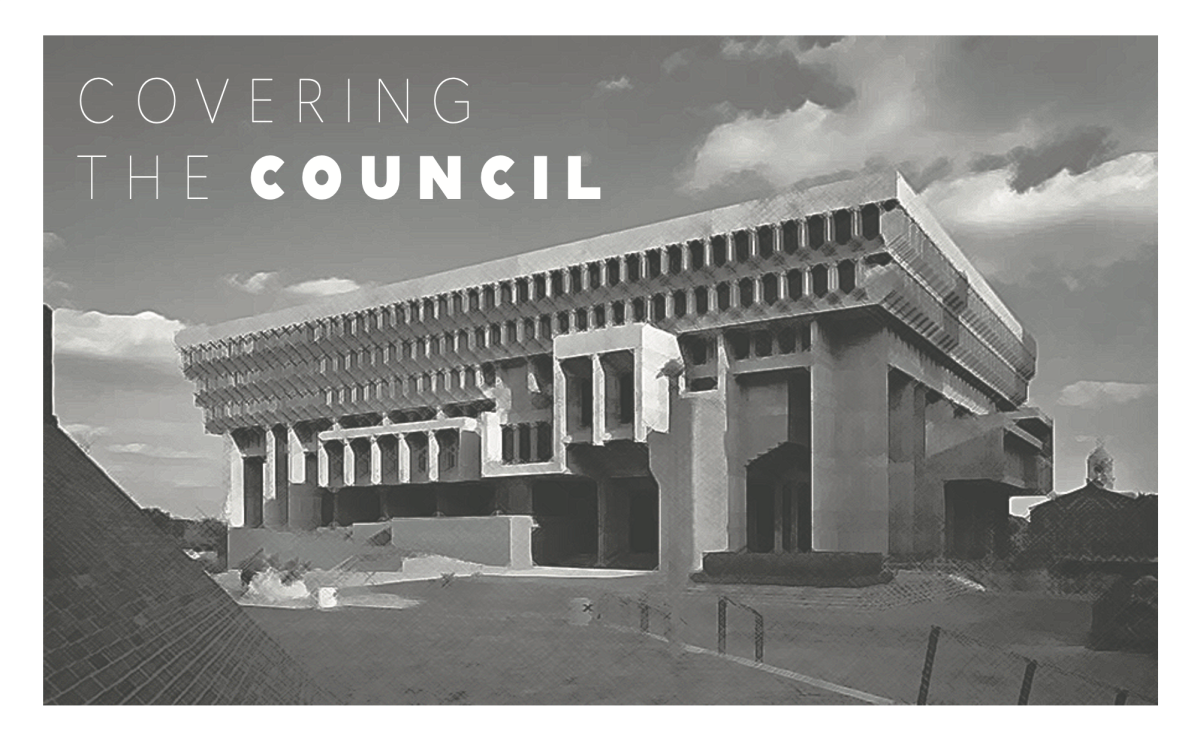
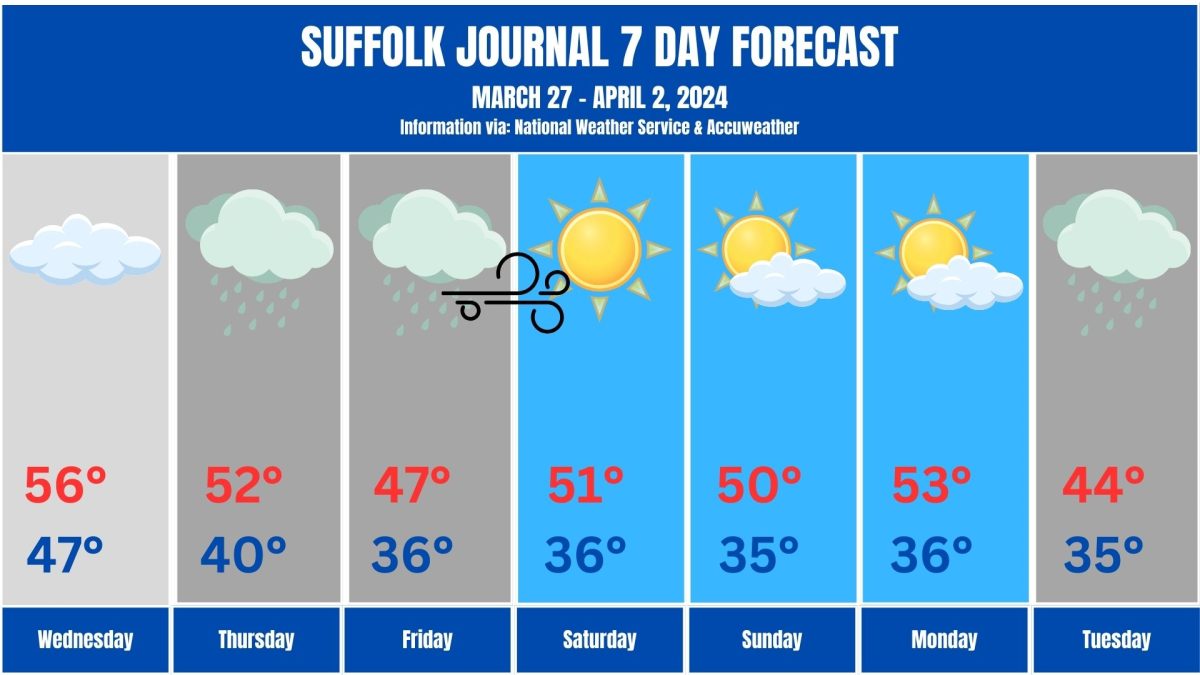
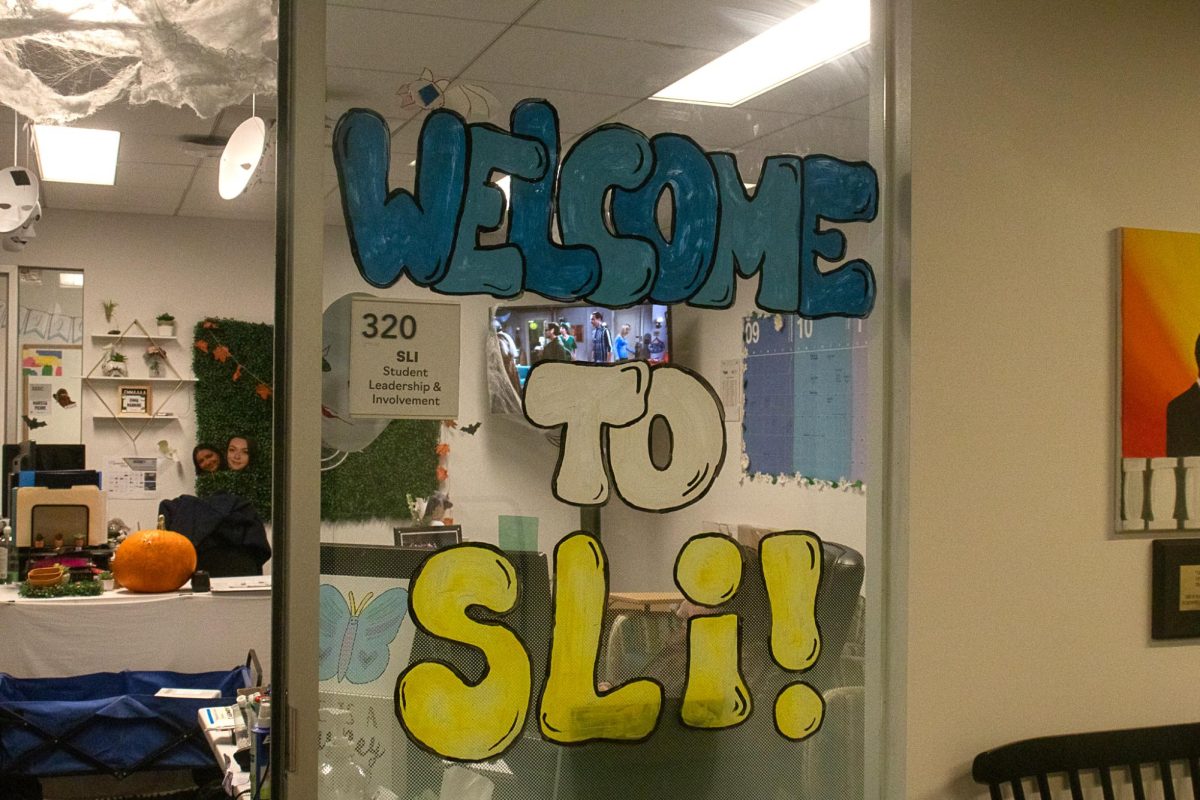

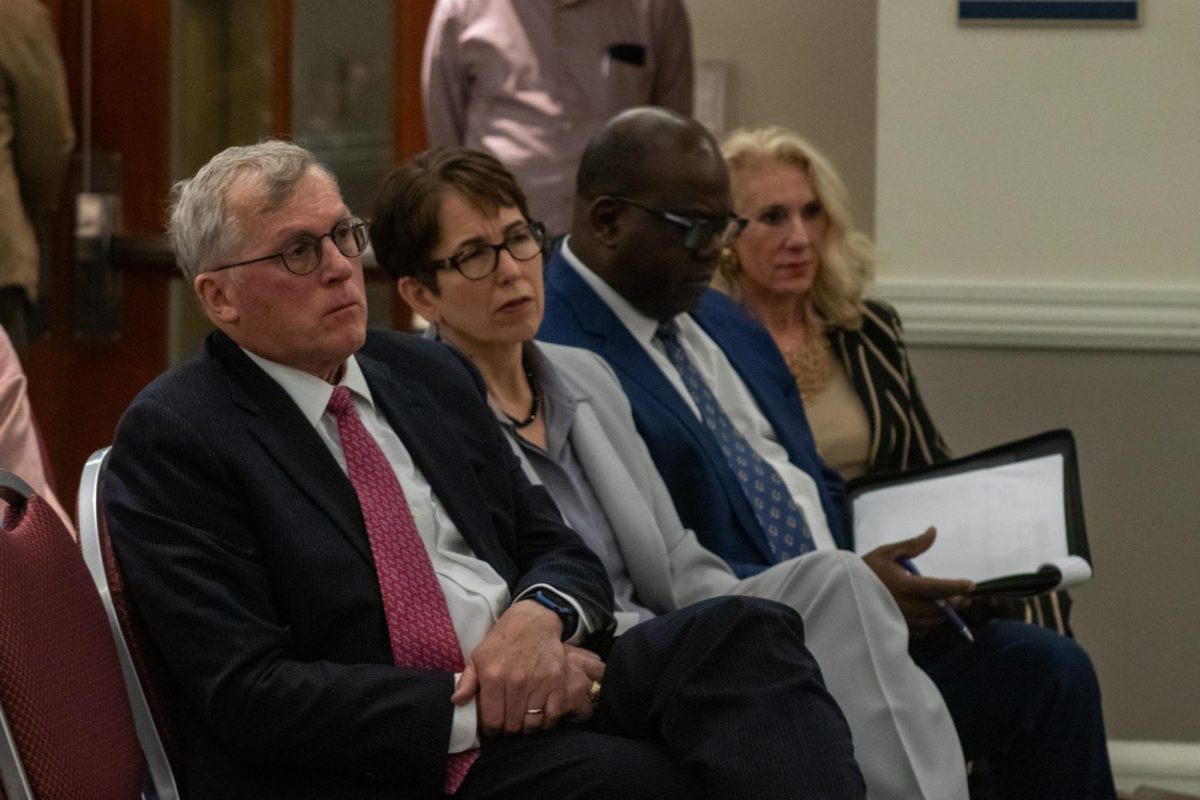
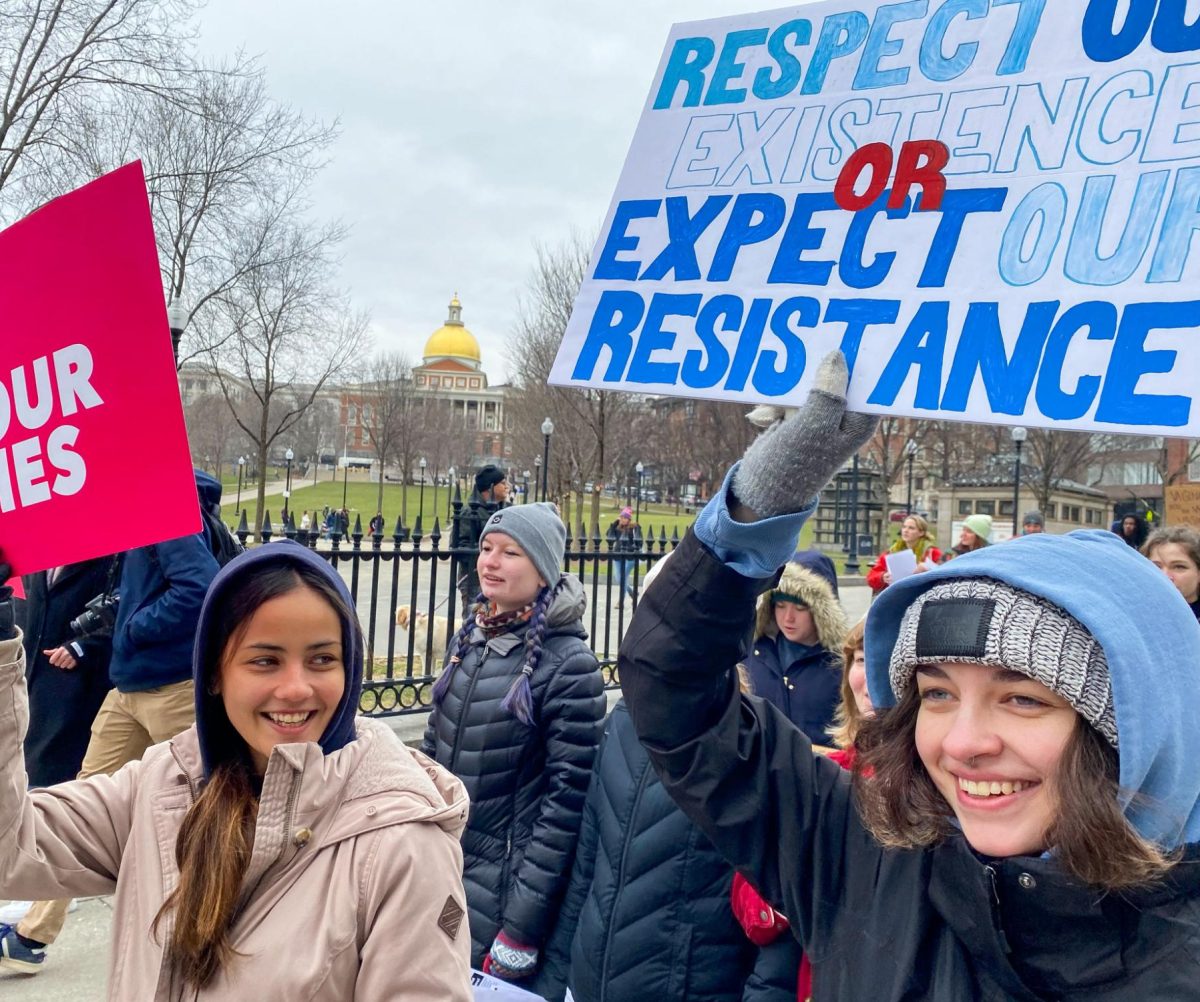
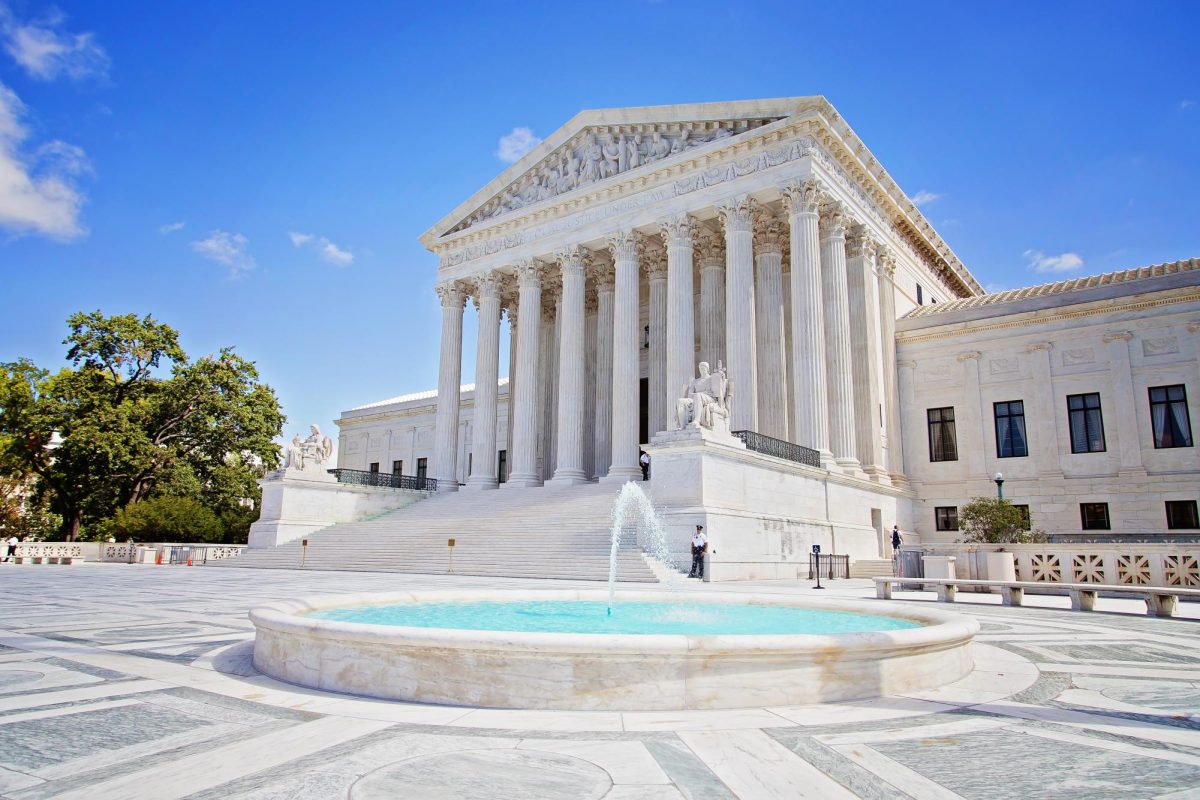
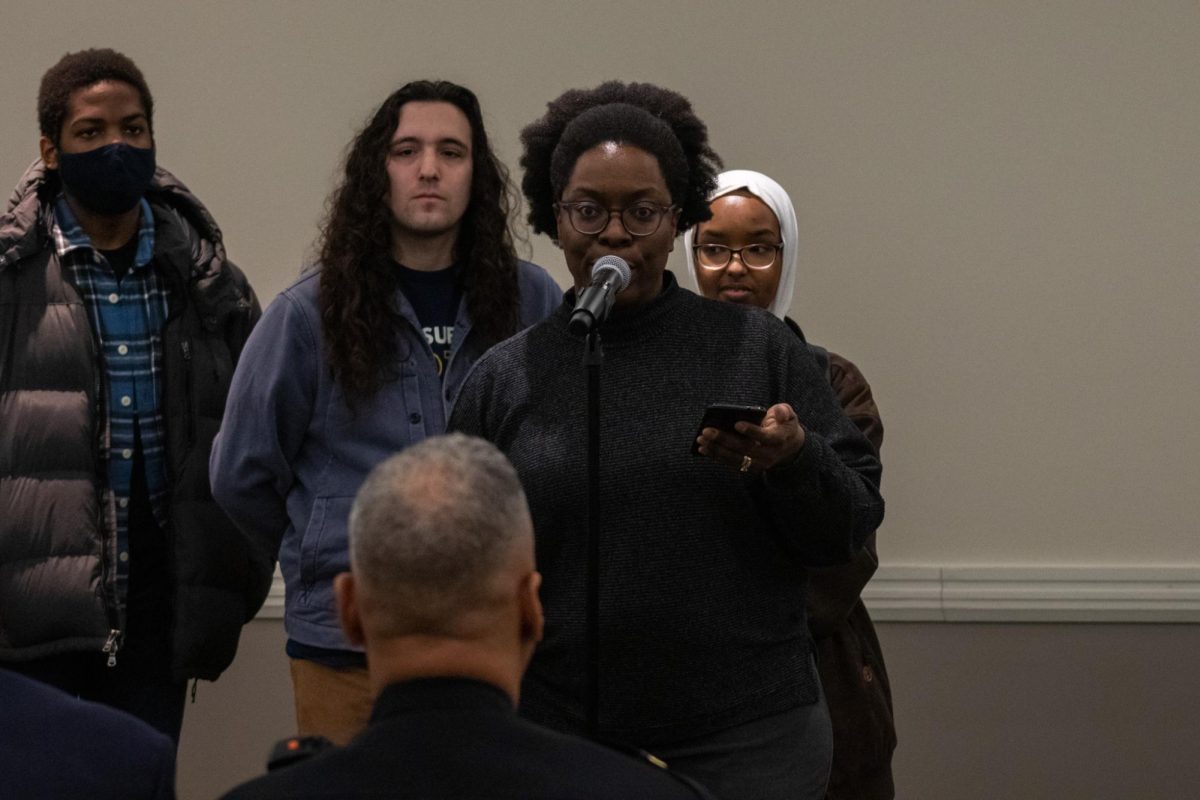

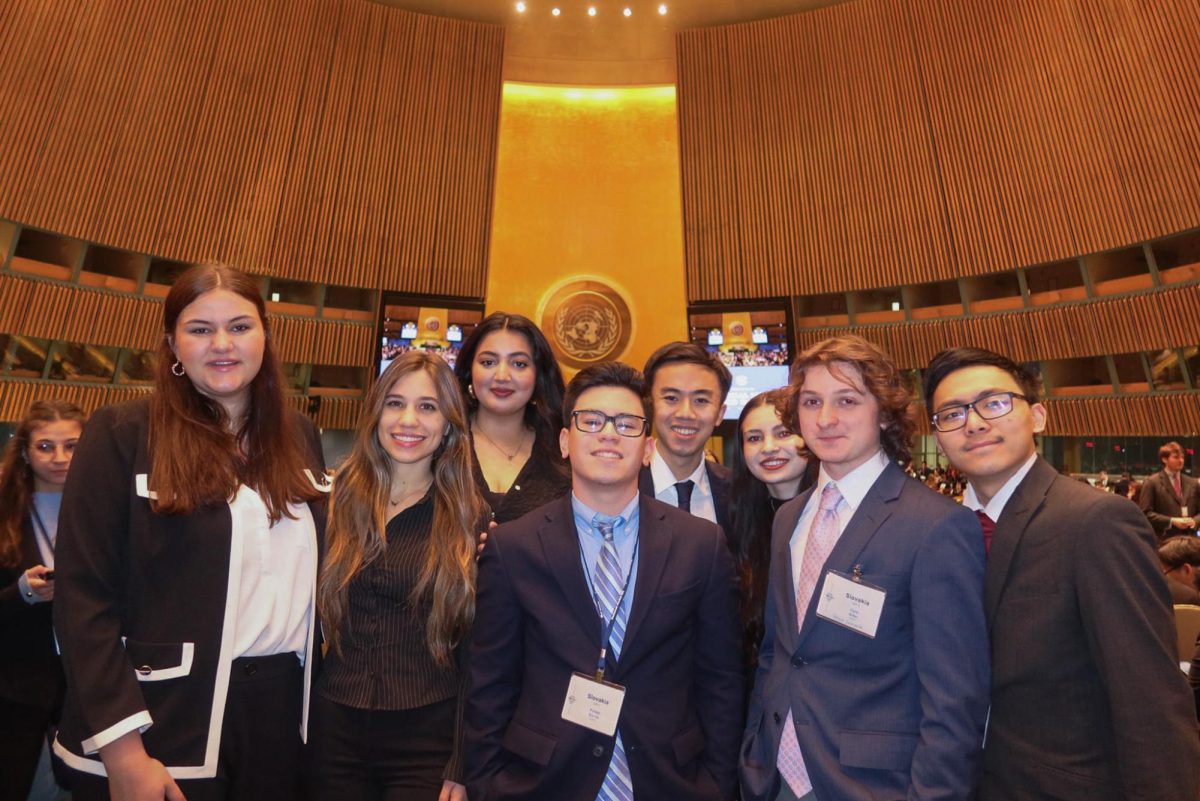
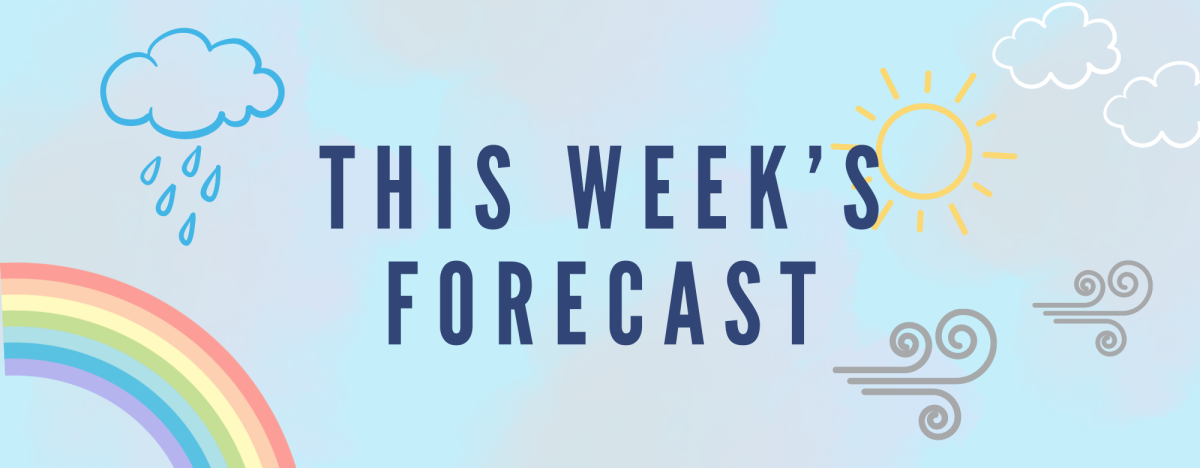
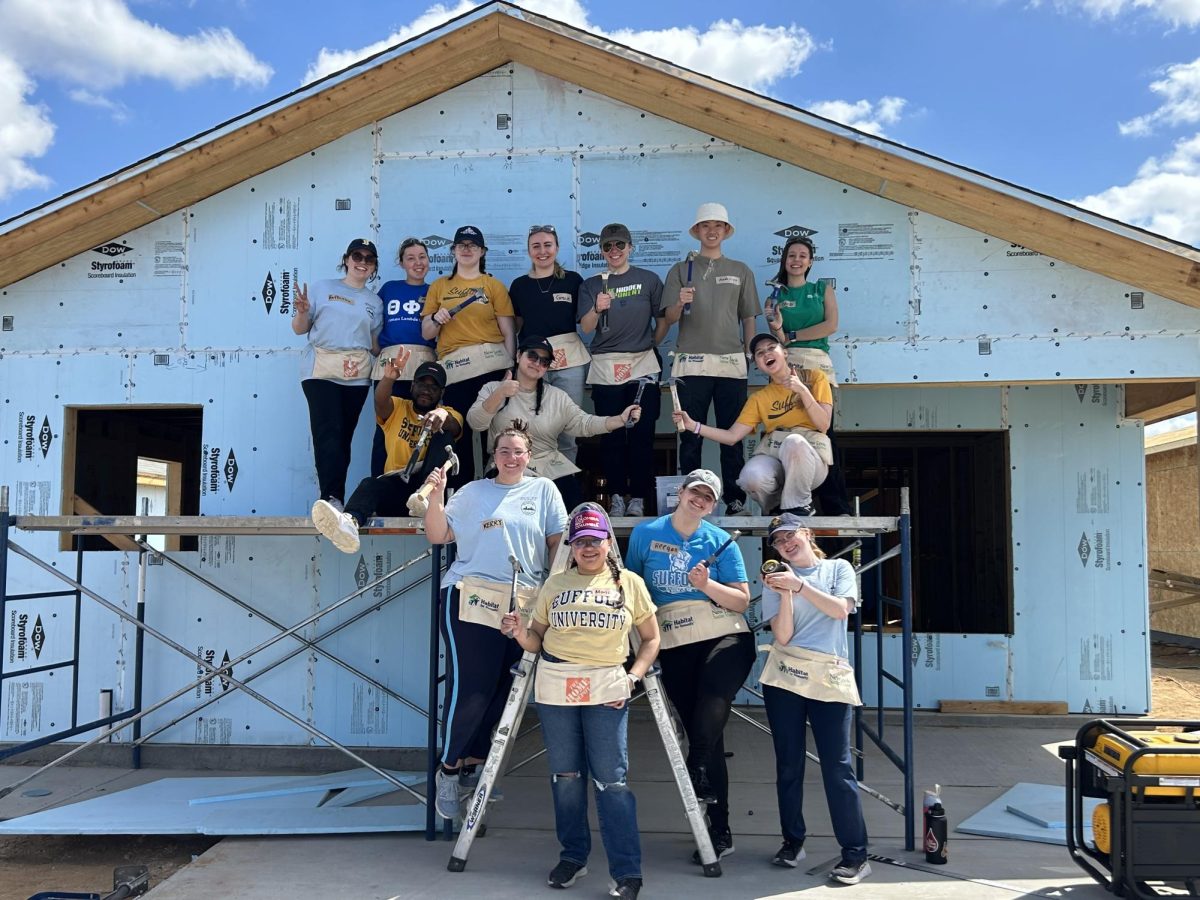
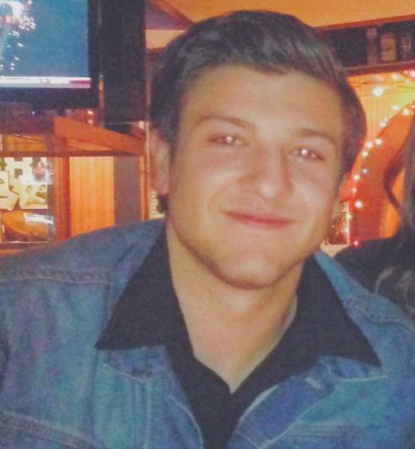
Chelcie • Nov 19, 2015 at 8:12 pm
this article is amazing